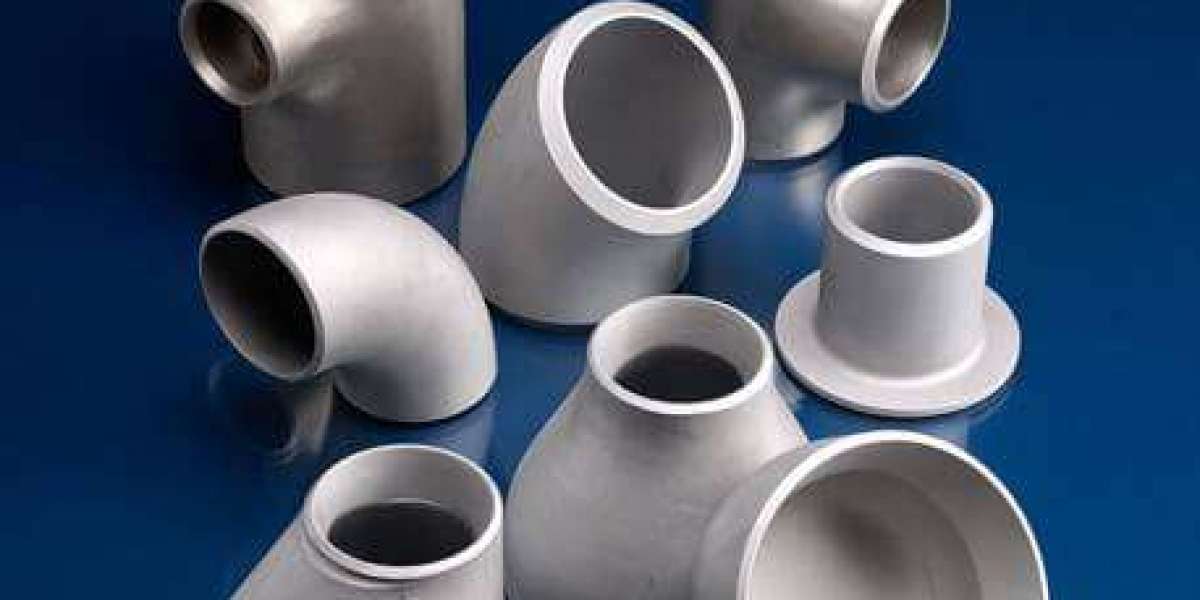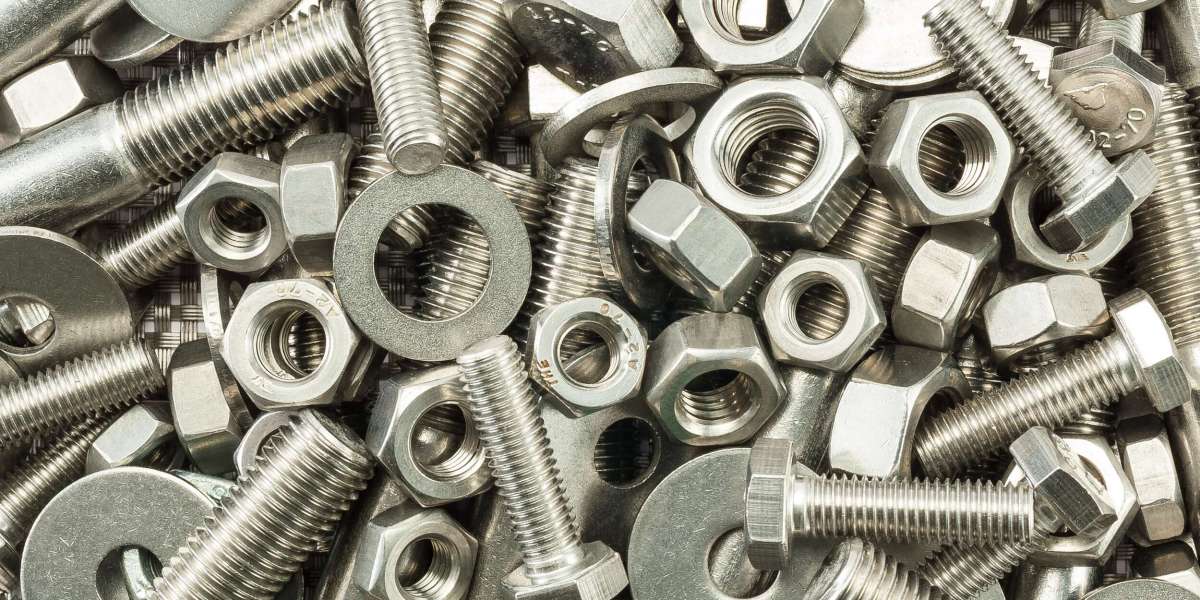What Are 304L Stainless Steel Buttweld Fittings?
304L stainless steel buttweld fittings are components used to connect sections of pipes or tubing, providing a secure and seamless transition between them. The "L" in 304L stands for "low carbon," which signifies that the alloy contains a lower percentage of carbon than standard 304 stainless steel. This reduction in carbon makes the material less prone to carbide precipitation during welding, which enhances its corrosion resistance, especially in welded structures.
These fittings are commonly used in the construction of pipe systems that require high resistance to corrosion, high temperatures, and pressure. Available in a variety of shapes and sizes, 304L buttweld fittings include elbows, tees, reducers, and caps, which are designed to meet specific piping needs.
Why Choose 304L Stainless Steel?
304L stainless steel is a part of the austenitic family of stainless steels. It has a balanced composition of chromium, nickel, and a minimal amount of carbon, giving it the following distinct advantages:
Corrosion Resistance:
304L stainless steel is highly resistant to rust and corrosion, making it ideal for use in environments exposed to moisture, chemicals, and extreme weather conditions. This characteristic ensures a long-lasting performance of buttweld fittings, especially in industries such as food processing, pharmaceuticals, and chemical manufacturing.Heat Resistance:
This alloy can withstand high temperatures, making it suitable for piping systems in applications like oil refineries, power plants, and other high-heat environments.Ease of Fabrication:
304L is easier to weld compared to other stainless steel alloys, thanks to its low carbon content. This results in fewer issues related to heat-affected zones during welding, ensuring that the welded joints remain strong and durable.Strength and Durability:
While 304L is not as strong as some other stainless steel alloys, its balance of strength, ductility, and corrosion resistance makes it one of the most commonly used grades of stainless steel in piping applications.
Applications of 304L Stainless Steel Buttweld Fittings
304L stainless steel buttweld fittings are widely used in various industries, thanks to their excellent properties. Some of the key sectors that benefit from their use include:
Food and Beverage:
In food and beverage production, hygiene and resistance to corrosion are critical. 304L stainless steel meets these requirements, making it ideal for use in sanitary piping systems for transporting liquids, gases, and food products.Pharmaceutical and Biotechnology:
The pharmaceutical industry requires systems that can handle highly sensitive materials and withstand strict cleanliness standards. 304L buttweld fittings are widely used in pharmaceutical applications where corrosion resistance, cleanliness, and durability are vital.Chemical Processing:
Chemical plants often deal with aggressive chemicals and high temperatures. 304L buttweld fittings provide the necessary durability and resistance to corrosion under extreme conditions, ensuring that chemical pipelines maintain their integrity over time.Oil and Gas:
In the oil and gas industry, 304L stainless steel buttweld fittings are used for transporting oil, gas, and other fluids, thanks to their resistance to corrosion in both high temperatures and harsh environments.Water Treatment:
Water treatment facilities require piping systems that can handle both clean and wastewater, where 304L stainless steel’s corrosion resistance ensures the reliability and longevity of the system.
Benefits of 304L Stainless Steel Buttweld Fittings
Longevity and Durability:
The primary benefit of 304L stainless steel buttweld fittings is their ability to last in challenging environments. Their resistance to corrosion, rust, and high temperatures translates into a longer service life for piping systems.Low Maintenance Costs:
Due to their resistance to wear and tear, 304L buttweld fittings require minimal maintenance. This leads to lower operational costs and less downtime for industries that rely on continuous production processes.Improved System Efficiency:
The seamless connection provided by 304L stainless steel buttweld fittings ensures a smooth flow of liquids and gases, improving the overall efficiency of piping systems.Sustainability:
Stainless steel, including 304L, is highly recyclable, making it an eco-friendly option for industries looking to reduce their carbon footprint. Choosing stainless steel fittings contributes to sustainable practices by reducing the need for raw materials.
Why Are Buttweld Fittings Important?
Buttweld fittings are designed to provide a secure and leak-proof connection between different sections of pipe, crucial for the integrity of any piping system. These fittings are welded directly to the pipe, creating a strong, permanent bond that is less prone to leaks than threaded or flanged connections. This results in safer, more efficient systems with fewer potential points of failure. Moreover, the design of buttweld fittings allows for easy cleaning, which is essential in industries like food processing and pharmaceuticals where hygiene is paramount.
How to Choose the Right 304L Stainless Steel Buttweld Fittings
When selecting 304L stainless steel buttweld fittings for your project, consider the following factors:
Size and Pressure Requirements:
Ensure the fittings are designed to handle the expected pressure and flow within the system. Matching the correct size and pressure rating to your project’s requirements is crucial for system safety.Environmental Conditions:
Take into account factors such as temperature, humidity, and exposure to chemicals. 304L stainless steel is suitable for many environments, but understanding your project’s specific needs will ensure the longevity of your system.Compatibility:
Ensure that the fittings are compatible with the existing pipes and other components in your system. Choosing the correct type of fitting, such as elbows, tees, or reducers, ensures smooth and efficient operation.Standards and Certifications:
Always ensure that the 304L stainless steel buttweld fittings comply with industry standards and certifications to guarantee safety and performance.
Conclusion
304L stainless steel buttweld fittings offer a perfect combination of strength, durability, and resistance to corrosion, making them an ideal choice for a wide range of piping applications. Whether in the food and beverage industry, pharmaceuticals, chemical processing, or oil and gas, these fittings provide the reliability needed to maintain system performance and efficiency. By understanding the benefits and applications of 304L stainless steel buttweld fittings, you can make an informed decision that ensures the longevity and smooth operation of your piping systems.








